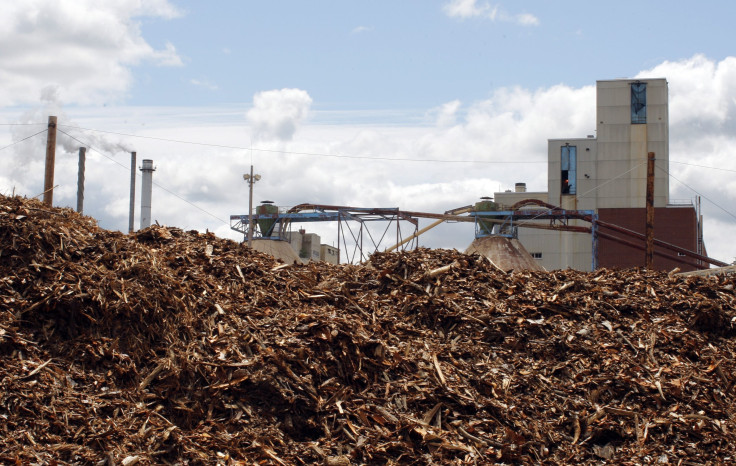Biomass Energy Plants Losing In Competition With Solar, As Farmers Worry Of Climbing Costs

Biomass energy plants have closed down rapidly in California, as more than six have been forced to shut down operations in the last two years. The closures come as the plants have struggled to compete with the many heavily government-subsidized solar farms that have sprung up in the state in recent years, the Los Angeles Times reported.
Biomass energy is a way of recycling plants or plant-based materials that cannot be used as food, but can be turned into energy. Without the biomass plants, however, the San Joaquin Valley Air Pollution Control District has considered allowing agricultural waste to be burned in open piles. That has the potential to produce cardiovascular illness-causing particulate matter in a district already known for its poor air quality, sparking environmental concerns.
Solar is in, biomass energy is out—and farmers are struggling to dispose of woody waste https://t.co/aMlWC2mXPf pic.twitter.com/MU1MMKOHeO
— Los Angeles Times (@latimes) January 1, 2016
"Do not underestimate the fact that state law requires that if farmers do not have an economically feasible alternative, the district is prohibited from banning the open burning of those materials," Executive Director Seyed Sadredin told the district's governing board at a monthly meeting in November, the Times reported. "We have 11 farmers right now that are risking the loss of hundreds of thousands of dollars if they do not find a way to dispose of that material."
Farmers were expected to have to pay more to clear agricultural debris. Whereas farmers may have paid $300 per acre to clear the waste in the past, now they might have to pay as much as $1,200, said Frank Sanchez, who owns a tree-grinding service.
Because of the already rising costs, some farmers are choosing to let their debris sit on their land, waiting for more cost-effective means to dispose of it. Some have begun experimenting with more advanced technology, but it could be years before such technology is efficient enough on a large scale.
Just 25 of the waste-to-energy plants remain, and now the biomass industry has taken its case to California's government, hoping the state's recent environmental push will strengthen the case for government support.
"The new technology is just not developed yet to the scale that we are," Rick Spurlock, general manager of the Rio Bravo Fresno plant, told the LA Times. "But problem is, that future is 10 to 15 years away and the problem we have is today."
© Copyright IBTimes 2024. All rights reserved.




















